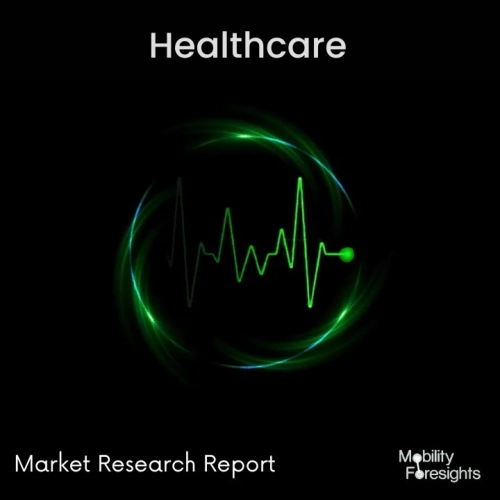Indonesia Oncology-Cancer Drugs Market
Introduction
TheIndonesia Oncology-Cancer Drugs Marketis experiencing substantial growth due to increasing cancer prevalence, advancements in targeted therapies, and rising investment in oncology research. Cancer drugs play a crucial role in treating various types of cancer, improving survival rates, and enhancing the quality of life for patients.
Oncology drugs are categorized into various types, including:
- Chemotherapy Drugs: Traditional drugs that kill or slow the growth of cancer cells.
- Targeted Therapy: Precision medicines that block specific cancer cell molecules.
- Immunotherapy: Treatments that boost the immune systemâs ability to fight cancer.
- Hormonal Therapy: Used in hormone-sensitive cancers such as breast and prostate cancer.
- Radiopharmaceuticals: Radioactive drugs used in cancer imaging and treatment.
The growing adoption of personalized medicine and the emergence of innovative drug delivery systems are driving the oncology drug market inIndonesia.
Growth Drivers for the Indonesia Oncology-Cancer Drugs Market
Several factors contribute to the increasing demand for cancer drugs inIndonesia, including research advancements, supportive government policies, and evolving treatment methodologies.
- Rising Incidence of Cancer:The growing number of cancer cases worldwide is increasing the demand for effective treatment options, prompting pharmaceutical companies to develop novel therapies.
- Advancements in Targeted and Immunotherapies:Breakthroughs in genetic profiling and molecular oncology are leading to the development of precision medicine, offering more effective and less toxic treatment alternatives.
- Increasing Investment in Oncology Research & Drug Development:Biopharmaceutical companies and research institutions are heavily investing in R&D to develop next-generation cancer therapies, including CAR-T cell therapy and bispecific antibodies.
- Expanding Use of Combination Therapies:Oncology treatments are increasingly shifting toward combination therapies, where two or more drugs are used together to improve treatment efficacy and reduce resistance.
- Government Initiatives and Favorable Regulatory Approvals:Regulatory bodies inIndonesiaare expediting drug approvals and providing funding for oncology research, ensuring faster access to life-saving medications.
Indonesia Oncology-Cancer Drugs Market Trends
Several emerging trends are shaping theIndonesia Oncology-Cancer Drugs Market, influencing drug development, pricing, and patient accessibility.
- Rise of Personalized and Precision Medicine:The integration of biomarkers and genetic profiling is driving the shift toward personalized oncology treatments tailored to individual patient needs.
- Growth of Biosimilars in Oncology:With the expiration of patents for major biologic drugs, biosimilars are gaining traction as cost-effective alternatives, improving access to cancer treatments.
- Expansion of Cell and Gene Therapies:CAR-T cell therapy and gene-editing technologies are transforming cancer treatment by offering highly targeted and long-lasting solutions for certain malignancies.
- Increasing Role of Artificial Intelligence (AI) in Drug Discovery:AI and machine learning are revolutionizing oncology drug discovery, enabling faster identification of potential drug candidates and optimizing clinical trials.
- Development of Novel Drug Delivery Systems:Advancements in nanotechnology and liposomal formulations are improving drug bioavailability and reducing side effects, enhancing patient compliance.
Challenges in the Indonesia Oncology-Cancer Drugs Market
Despite strong market growth, several challenges impact the adoption and accessibility of oncology drugs inIndonesia.
- High Cost of Cancer Treatments:The expensive nature of cancer therapies, especially immunotherapies and targeted drugs, limits affordability and accessibility for many patients.
- Regulatory and Approval Complexities:Stringent approval processes and compliance requirements for new cancer drugs can delay market entry and impact drug availability.
- Drug Resistance and Side Effects:Some cancer treatments lose effectiveness over time due to drug resistance, necessitating ongoing research to develop new treatment approaches.
- Limited Access to Oncology Drugs in Emerging Markets:Many developing regions face challenges in accessing advanced oncology drugs due to economic constraints and insufficient healthcare infrastructure.
- Supply Chain and Distribution Challenges:Ensuring a consistent supply of cancer drugs, especially biologics and personalized therapies, requires efficient logistics and cold-chain management.
Indonesia Oncology-Cancer Drugs Market Segmentation
TheIndonesia Oncology-Cancer Drugs Marketcan be segmented based on drug type, therapy, application, and distribution channel.
By Drug Type:
- Chemotherapy Drugs
- Targeted Therapy Drugs
- Immunotherapy Drugs
- Hormonal Therapy Drugs
- Radiopharmaceuticals
- Biosimilars
By Therapy Type:
- Monotherapy
- Combination Therapy
By Application:
- Lung Cancer
- Breast Cancer
- Colorectal Cancer
- Prostate Cancer
- Blood Cancer (Leukemia, Lymphoma, Myeloma)
- Other Cancers
By Distribution Channel:
- Hospital Pharmacies
- Retail Pharmacies
- Online Pharmacies
- Specialty Clinics
Indonesia Oncology-Cancer Drugs Market Size and Forecast
TheIndonesia Oncology-Cancer Drugs Marketis projected to experience substantial growth in the coming years, driven by increased cancer prevalence, advancements in drug discovery, and strong regulatory support. The market is expected to reach$XX billionby2030, growing at aXX% CAGR.
- Targeted Therapies and Immunotherapies: Expected to dominate the market due to higher efficacy and lower side effects.
- Biosimilars and Affordable Treatment Alternatives: Anticipated to witness increased adoption, especially in cost-sensitive regions.
- Emerging Markets: Significant growth opportunities in developing regions ofIndonesiawith expanding healthcare access.
Despite challenges such as high treatment costs and regulatory hurdles, theIndonesia Oncology-Cancer Drugs Marketis set for continuous expansion, with innovations in personalized medicine, AI-driven drug discovery, and immunotherapy shaping the future of cancer treatment.
Other Related Reports

